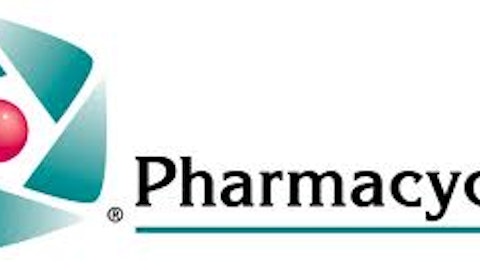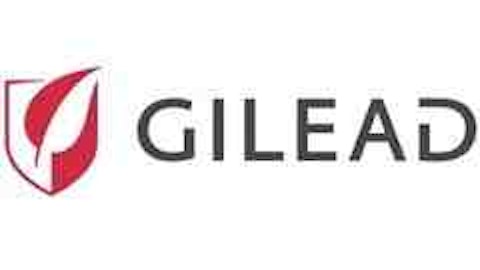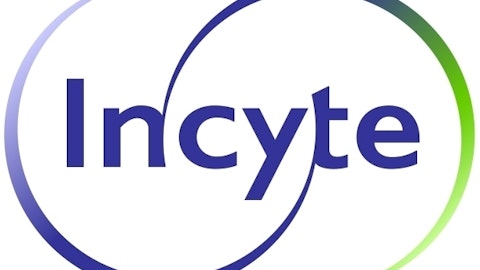The biotech industry is a marvel among traders and investors because it can double your investment, or halve it, based on a single clinical study. Millions, sometimes billions, of research dollars are poured into developing new drugs and bringing these therapies to market — $49 billion throughout the entire industry last year, according to PhRMA. However, a vast majority of drugs discovered in the laboratory setting will never see the light of day.

Source: Idaho National Laboratory, Flickr.
Based on data from Medscape, only about one in every 5,000 to 10,000 researched drugs in preclinical trials will be approved by the Food and Drug Administration. This means there’s quite the premium given to biotech stocks because of solid clinical data, and quite the haircut when it doesn’t pan out.
Although there seem to be hundreds of drugs approved by the FDA and dozens of biotech stocks to choose to invest in, very few are truly stable investments over the long term. Quite a few biotech companies are burning through their cash with, or without, any FDA-approved drugs and look as if they may join numerous peers that have come before them by declaring bankruptcy or liquidating their assets. Keep in mind that there are a lot of factors that can change within a biotech company’s product portfolio and that can completely reverse my speculations here, but at the moment, I’d say the following three biotech stocks are on the path toward running out of cash and ideas.
Idenix Pharmaceuticals Inc (NASDAQ:IDIX)
Dubbed the unluckiest biotech on Earth by Foolish biotech guru Brian Orelli, Idenix Pharmaceuticals Inc (NASDAQ:IDIX), which is primarily focused on developing hepatitis-C therapies, has a dubious streak of FDA clinical holds over the past three years.
In 2010, its then lead compound IDX184 and IDX320 were both placed on clinical hold by the FDA, with the company eventually scrapping IDX320. In 2012, IDX184 and IDX19368 were placed on clinical hold after a patient taking Bristol-Myers Squibb‘s BMS-096984 died from taking a hep-C drug that worked very similarly to IDX184 and IDX19368. Not surprisingly, Idenix Pharmaceuticals Inc (NASDAQ:IDIX) scrapped both of these drugs as well. Finally, earlier this year it was announced that the FDA had placed a clinical hold on IDX20963, its current lead drug, until the company turns in preclinical safety data to the FDA. Call it the mid-stage curse, but Idenix Pharmaceuticals Inc (NASDAQ:IDIX) can’t seem to get anything past the FDA.
By comparison, both Gilead Sciences, Inc. (NASDAQ:GILD) and AbbVie (NYSE:ABBV) are right on track to get their oral hep-C pills approved over the next year. Gilead Sciences, Inc. (NASDAQ:GILD)’s sofosbuvir mopped the floor with the placebo in all four of its late-stage trials, while AbbVie’s drug combo was effective in eliminating all detectable levels of the disease after 12 weeks in 77 of 79 patients in a mid-stage trial. With sofosbuvir already under review by the FDA and AbbVie’s combo drug likely heading to an NDA filing next year, Idenix Pharmaceuticals Inc (NASDAQ:IDIX)’s window of opportunity has pretty much closed.
With $177.6 million in cash and a burn rate that should come in around $90 million annually, I see very few options left for the company other than big dilutive share offerings. That’s bad news for shareholders and all the more reason to avoid Idenix Pharmaceuticals Inc (NASDAQ:IDIX)’s stock.
Idenix may have come as a shock to some of you, but for biotech-savvy investors, the vultures have been eyeing Celsion Corporation (NASDAQ:CLSN)’s carcass ever since its top-line HEAT trial results were released at the end of January for its toxin delivery system designed to treat certain types of cancer, ThermoDox.
In that trial, 701 patients across 11 countries were being tested in the hope that they would show a 33% or better improvement in progression-free survival for primary liver cancer. The actual results were almost laughably bad, with the placebo demonstrating results that were 20% better than expected, and ThermoDox coming in with vastly inferior results than a 33% improvement in PFS based on the company’s press release.
On one hand, not all hope is lost, as certain drugs and delivery methods do perform differently on different types of cancer. ThermoDox is still being clinically tested in breast cancer and metastatic liver cancer, so it could completely surprise Wall Street and investors with solid results.
On the other hand, the initial results in this case were so far out in left field that I’m having a hard time seeing how ThermoDox provides any value to investors. Celsion Corporation (NASDAQ:CLSN) has managed to raise $30 million in the first six months of the year by selling stock, but it will probably need numerous other dilutive share offerings if it hopes to keep the hamster on its wheel. With just $48.9 million in cash left and a burn rate that I project will hit $20 million to $25 million annually, Celsion Corporation (NASDAQ:CLSN)’s days may be numbered.
In similar fashion to Celsion Corporation (NASDAQ:CLSN), GTx, Inc. (NASDAQ:GTXI) has seen two of its lead drugs fail in late-stage trials since 2010, with enobosarm becoming its latest casualty last week. Enobosarm, which is designed to treat muscle-wasting associated with non-small-cell lung cancer by improving body mass and physical function, failed to meet both of its primary endpoints, leaving the company with a very thin remaining pipeline.
Currently, GTx, Inc. (NASDAQ:GTXI) has an ongoing mid-stage trial for capesaris as a secondary hormone therapy for castration-resistant prostate cancer, but beyond that, it has only one other combo drug in clinical trials, which just happens to also involve enobosarm. Its two remaining studies are both preclinical in nature. In other words, GTx, Inc. (NASDAQ:GTXI)’s entire valuation is now based on its capesaris program.
In the meantime, GTx, Inc. (NASDAQ:GTXI) is down to just $31.6 million in cash and is on pace to completely burn through this amount before the end of 2014 unless it issues a secondary offering or finds a very generous (or insane) biotech donor. With little late-stage trial success, GTx, Inc. (NASDAQ:GTXI) is down to its final option in capesaris, and I’m not holding my breath.
The article 3 Biotech Stocks That May Go to Zero originally appeared on Fool.com is written by Sean Williams.
Fool contributor Sean Williams has no material interest in any companies mentioned in this article. You can follow him on CAPS under the screen name TMFUltraLong, track every pick he makes under the screen name TrackUltraLong, and check him out on Twitter, where he goes by the handle @TMFUltraLong.The Motley Fool recommends Gilead Sciences.
Copyright © 1995 – 2013 The Motley Fool, LLC. All rights reserved. The Motley Fool has a disclosure policy.





